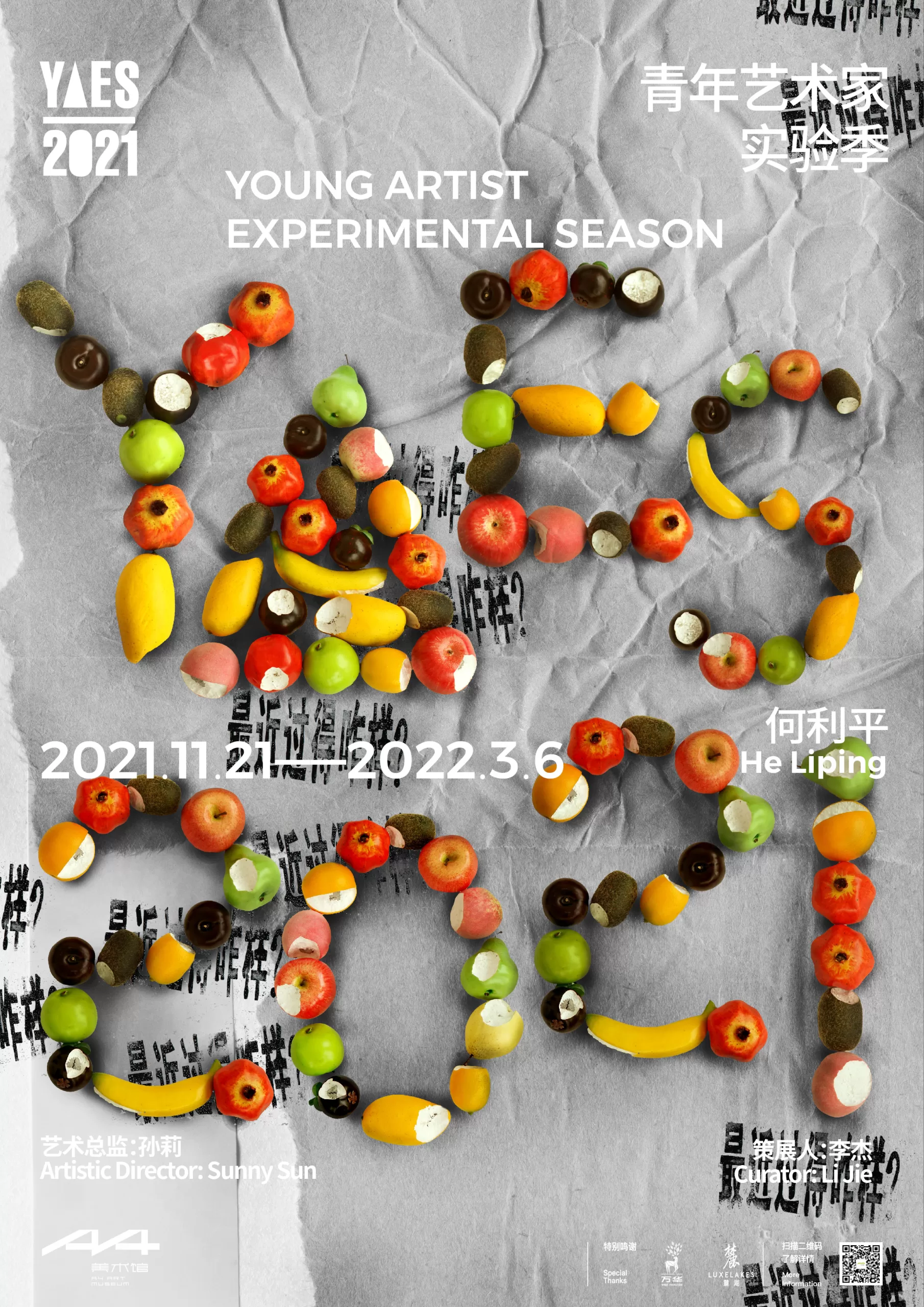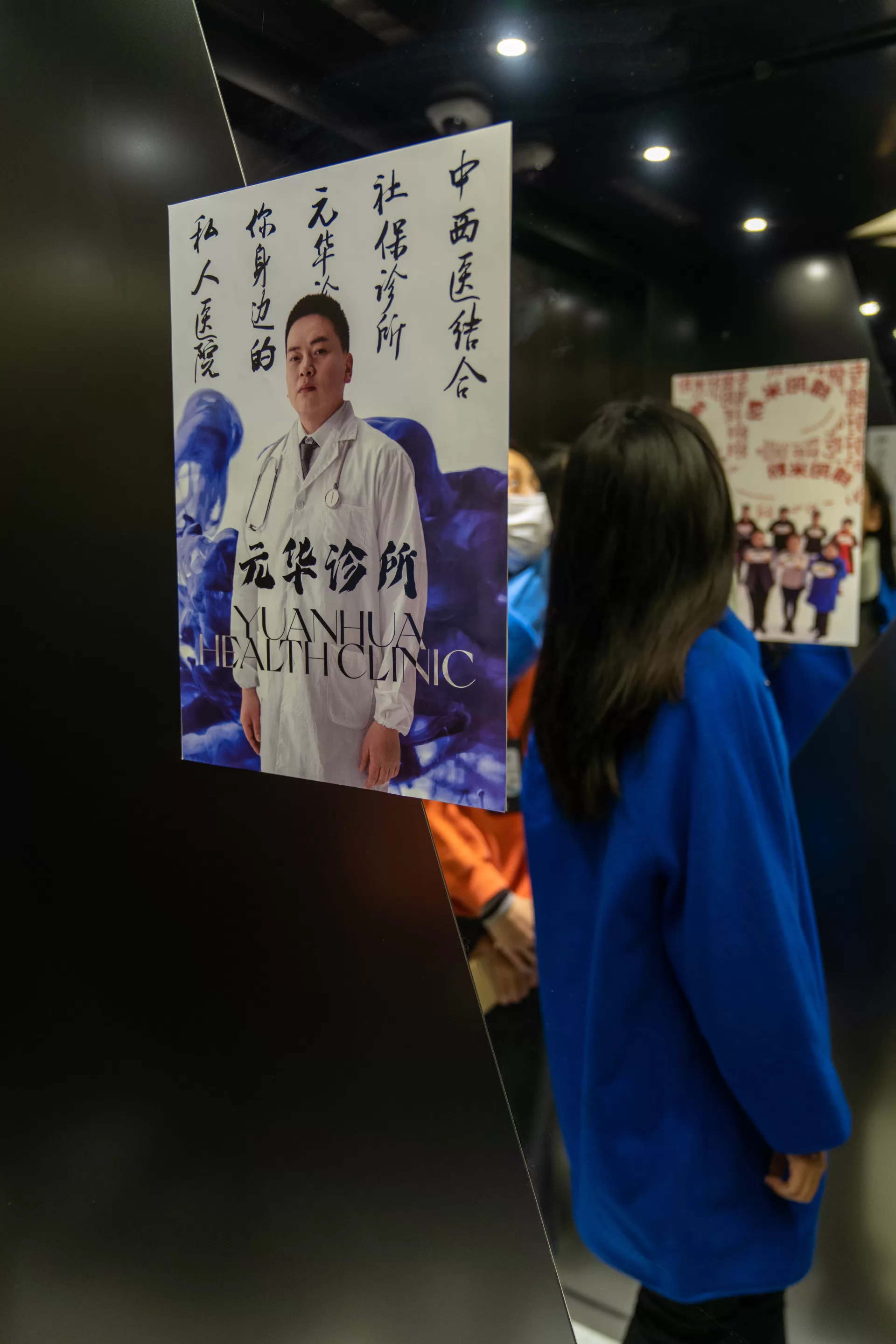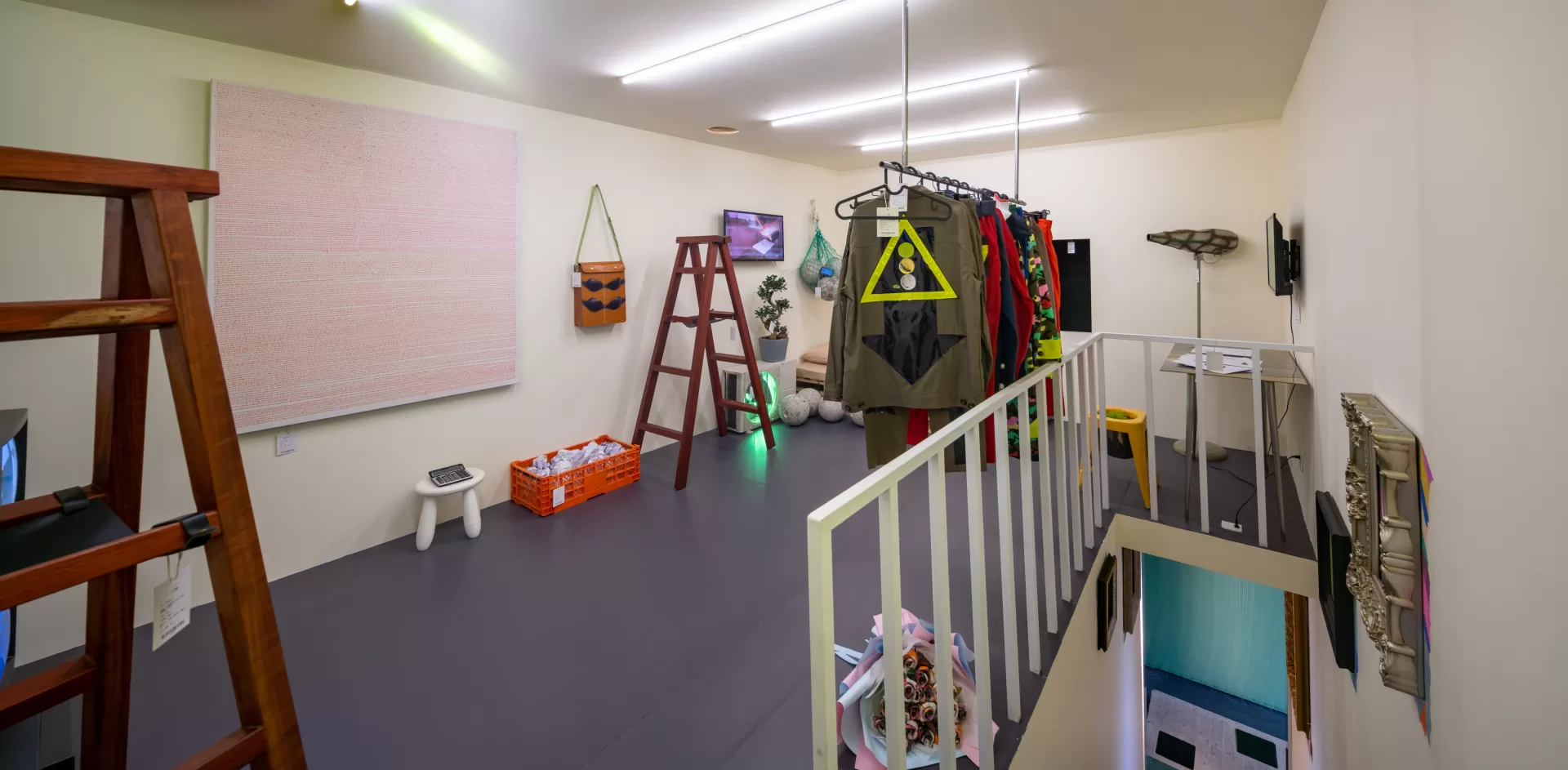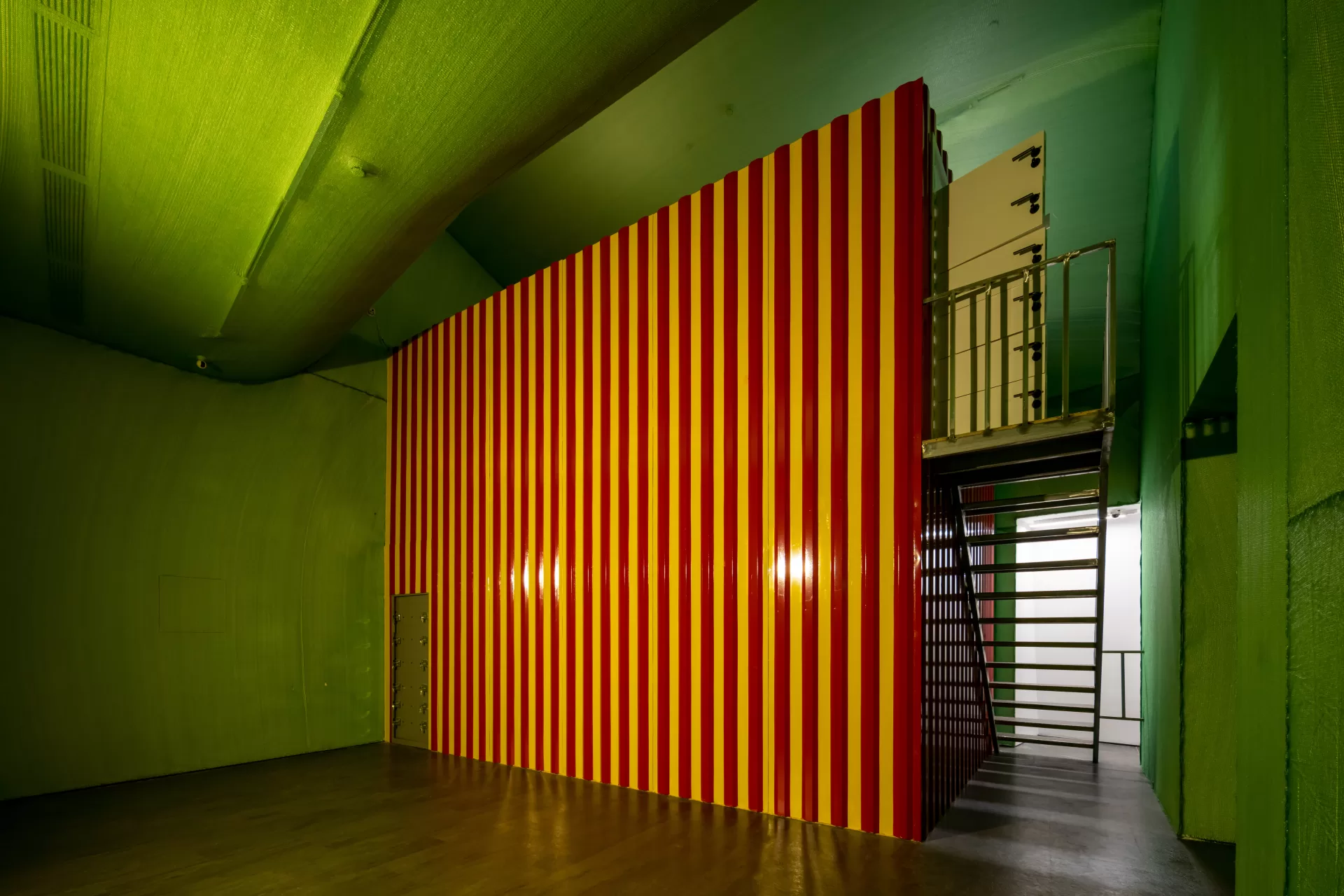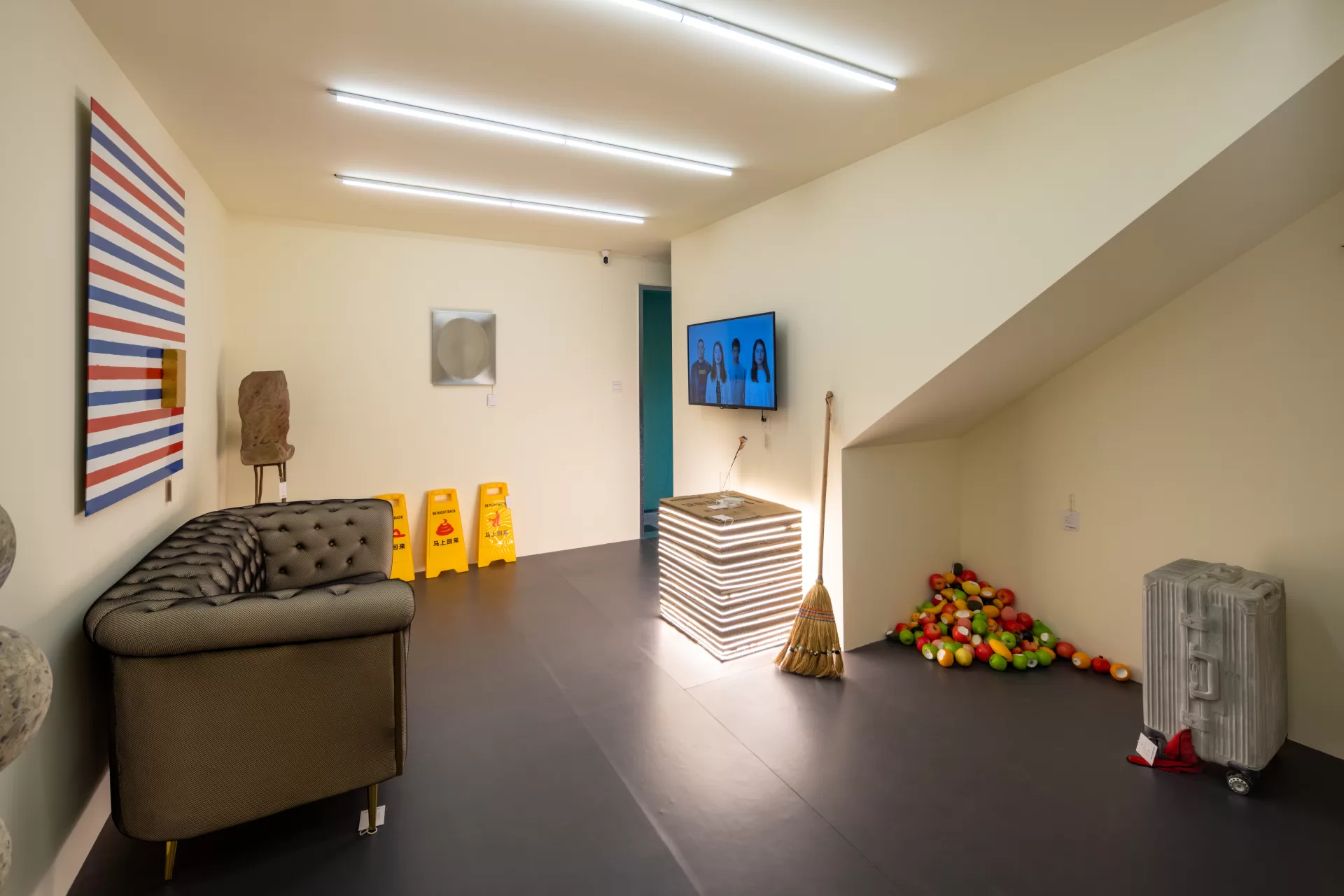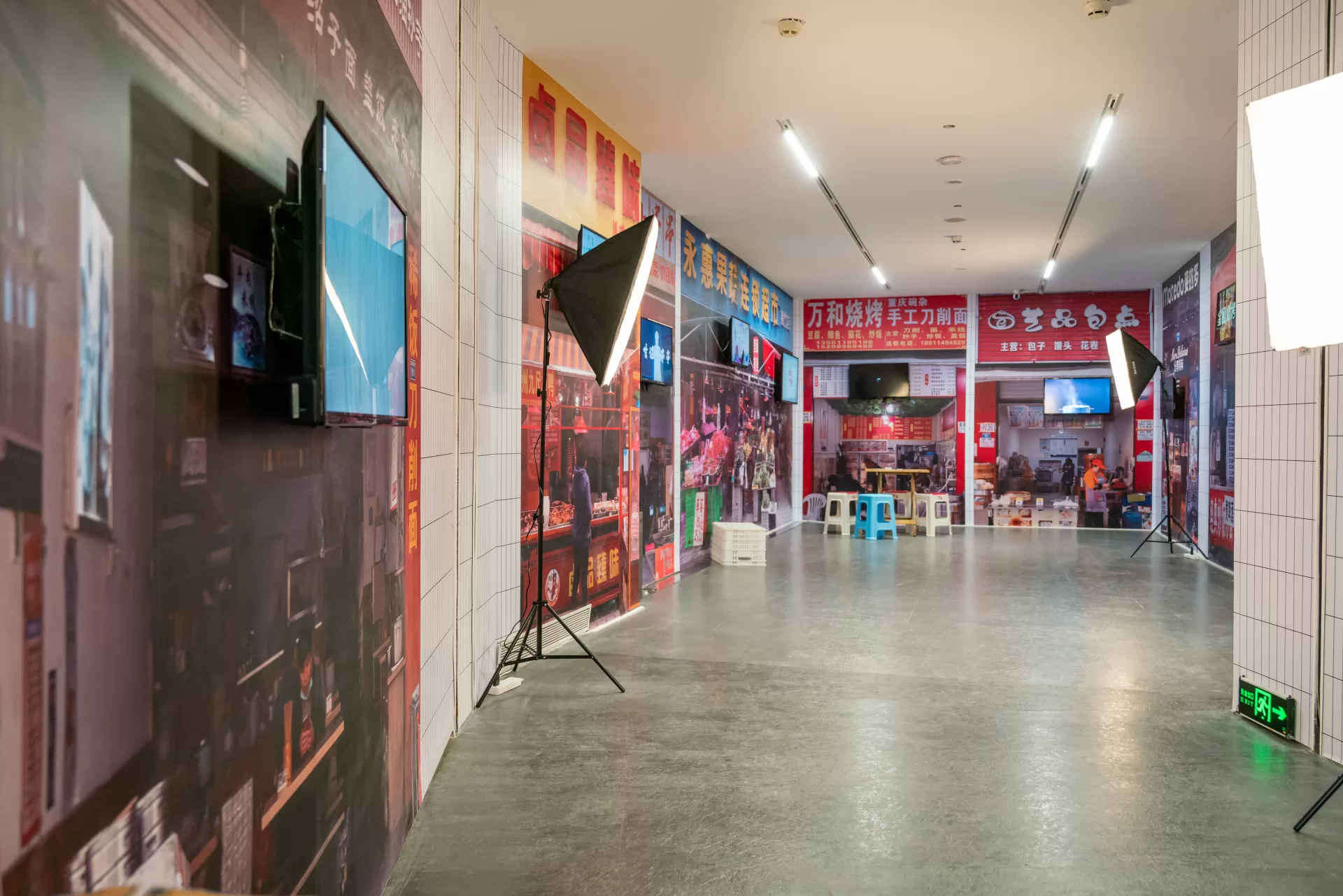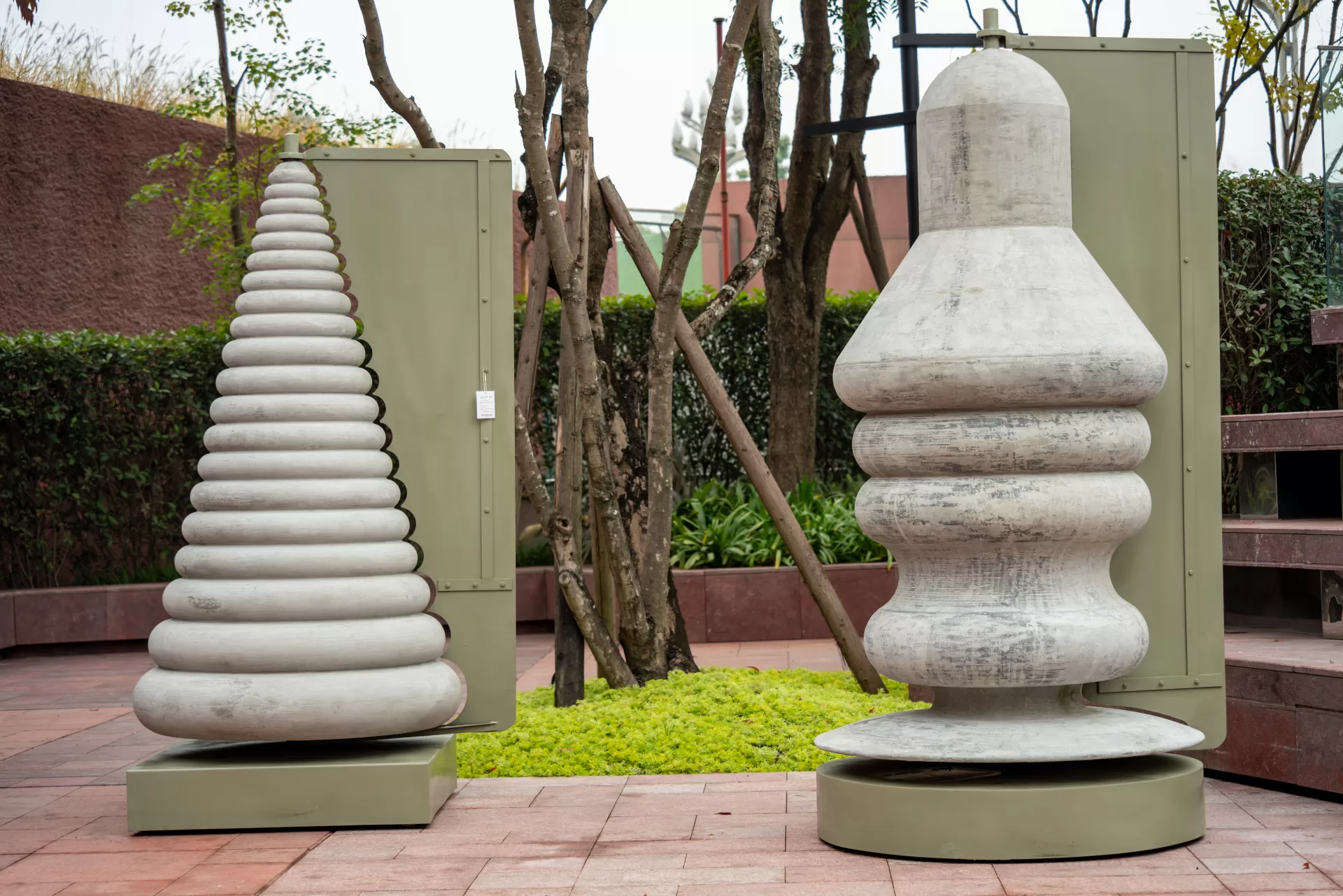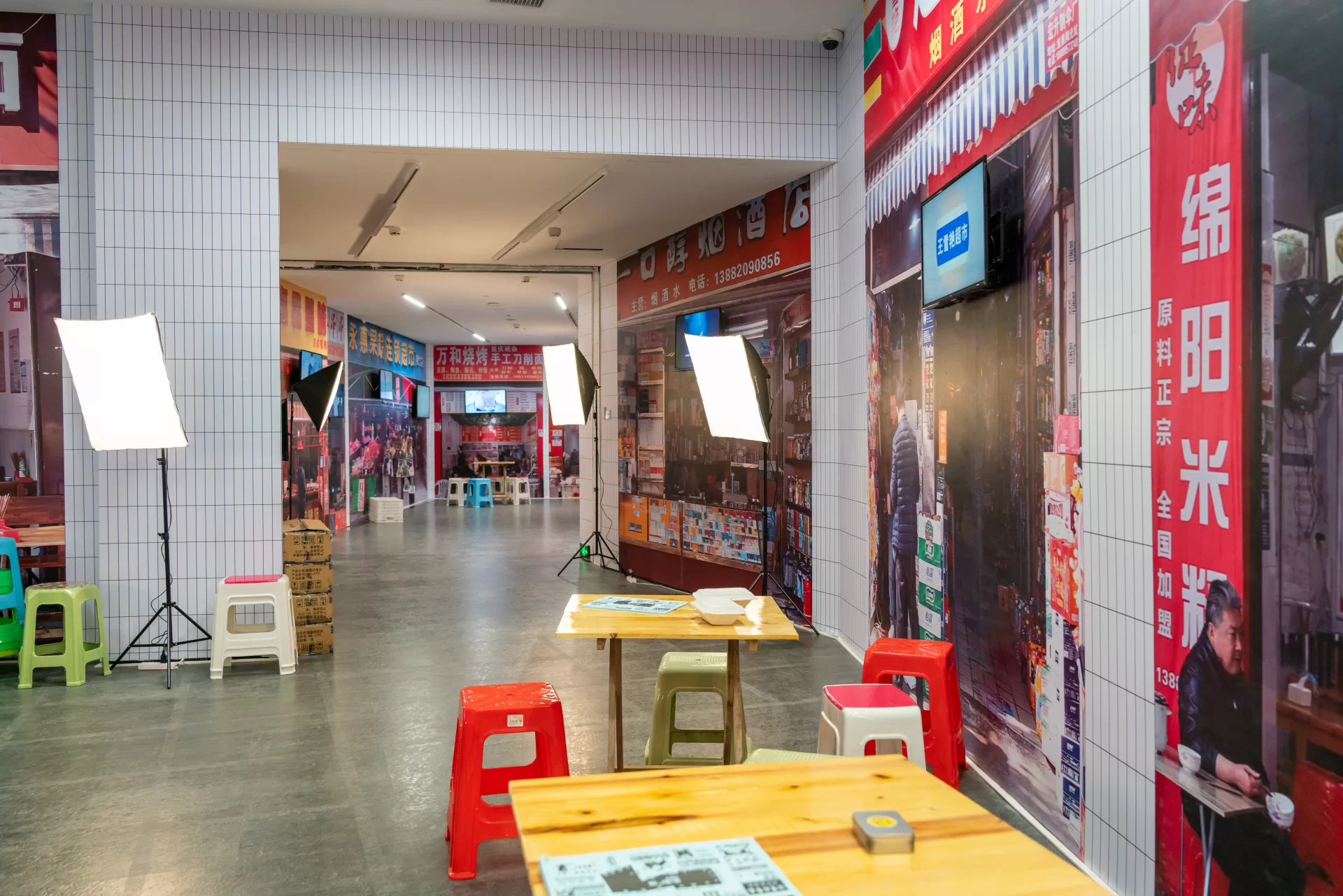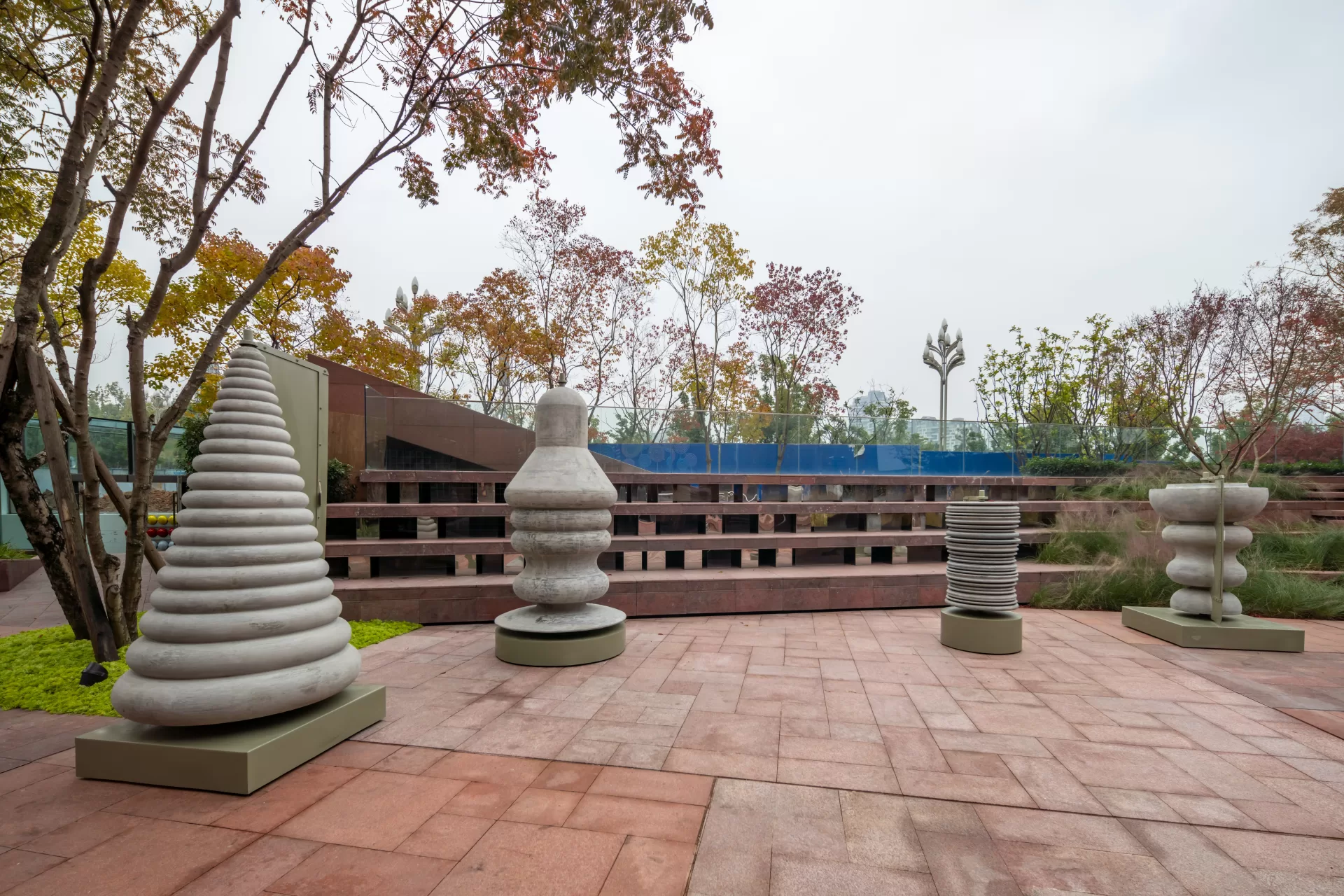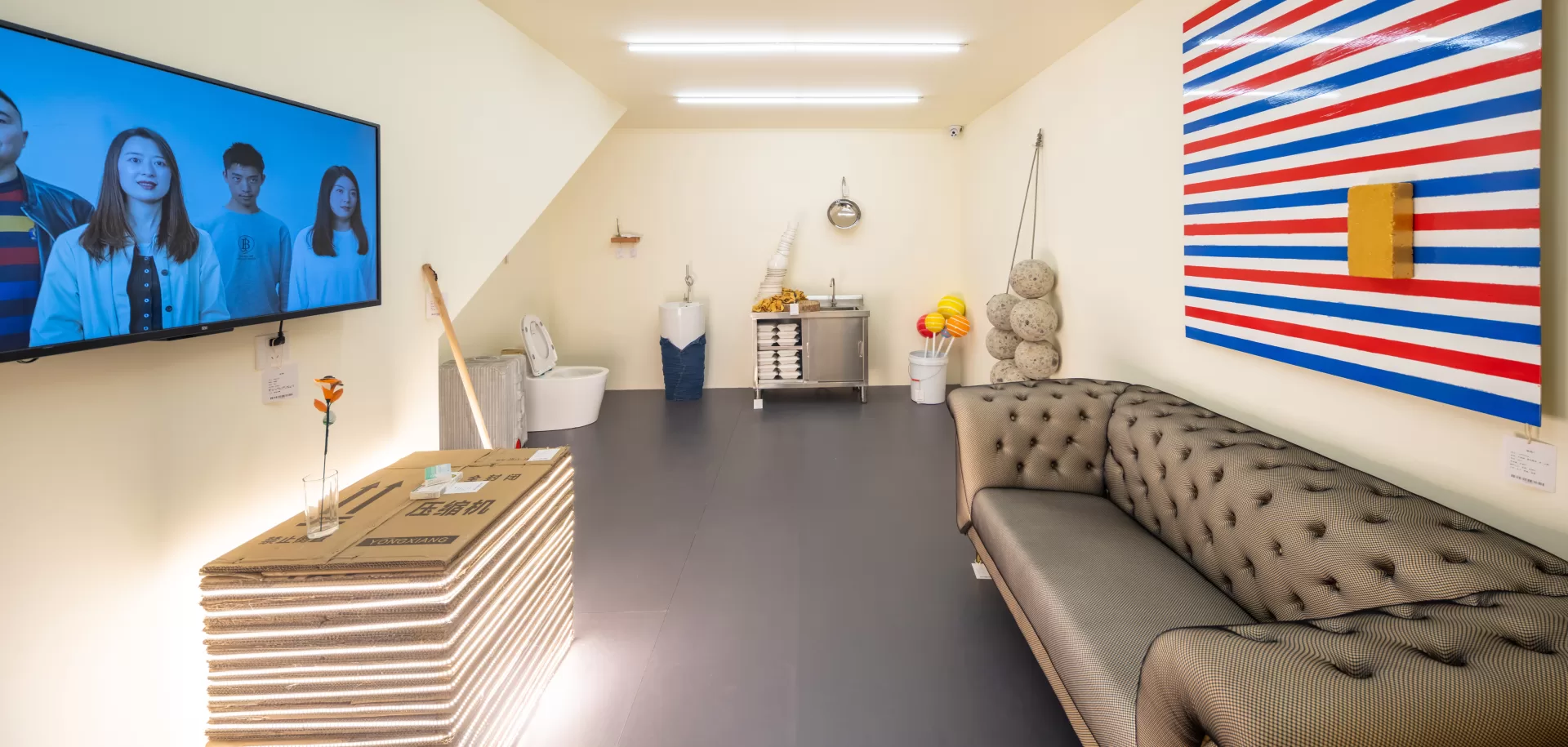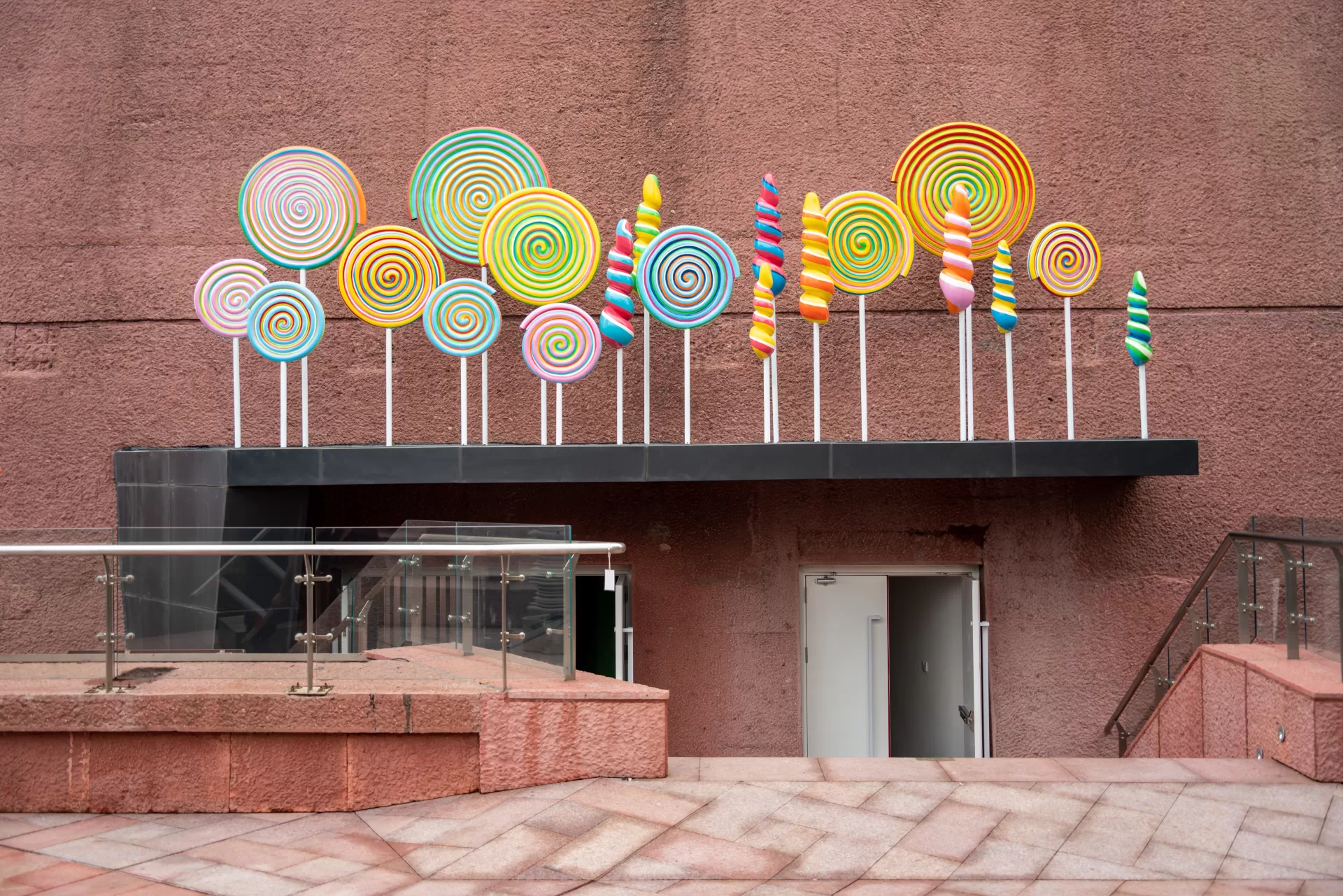How Are You Doing?
“How are you doing?” is a question neighbors often ask one another. It is also something that those away from home wish that they could ask the people they left behind, or a way to start a conversation with strangers on social media. Although the question does not really matter, it highlights a kind of reciprocity in our everyday lives. In the opening scene of The Truman Show, Truman greets his neighbors, asking how they are with a tilt of the head and a big smile, and he repeats that greeting just before he returns to the real world. He Liping infuses his understanding of life and art into the ordinary characters in his work. They are concrete, but they are also symbolic. They seem unremarkable, but they are also an attempt to awaken the self by creating uncertainty. This concern and disengagement are ways for He Liping to question reality.
In his recent experiments spanning performance, video, and installation, I have seen He Liping embody different roles, identities, and ways of working: a craftsman, a contract laborer, an online writer, a singer, an advertisement director, a part-time actor, an owner of a children’s clothing shop, and a designer of “bumpkin” fashion. Sometimes he switches freely between these roles in a video, but at other times, he takes on these different roles to intervene in or parody real life and to point out his own foibles in a self-deprecating way. Life Plaza is He Liping’s attempt to place his actions within a real-life space. He worked with the proprietors of shops in the Jingzhu Life Plaza to create a series of shop advertisements. The demand for and creativity of the advertisements came from discussions among the artist, the shop owners, and local residents. These mischievous ads will eventually return to the shops, where they will become part of reality, but also seem a bit out of place. He is looking for the things that fall through the cracks in our lived reality, trying to re-activate a multitude of voices from the streets.
In his new Work Safety, presented at the A4 Young Artist Experimental Season, He Liping does not use his body directly, and instead chooses to convey a small-town sensibility through a space and objects that have been carefully constructed, designed, and arranged. The work feels like a location for a low-budget art film about a young person who has moved into town. The objects seem familiar, but they have a specific mood about them. When transformed by an artist or artisan, subtle changes take place in the forms, materials, and uses of these objects. When visitors enter this little two-story building, they find a living room, kitchen, bedroom, and balcony that appear simple but are actually full of little details. Visitors can also observe, discover, and play with these altered everyday objects. Through their participation, they re-activate the people and things in the scene, unconsciously immersing themselves in a new way of discussing small-town life that He Liping has created.
He uses these spaces, creators, and developments to give us a new understanding of the more complex life experiences that underpin objects and labor—those tensions and values rooted in the everyday places that we often overlook. Here, the boundary between art and non-art becomes invalid. The burdens of daily life that press on every one of us and the dignity carried by every human life are both part of the mood of our era. The people who work around the clock, the people who travel to other places looking for opportunities, the people who stay up all night reading, and the people who wander looking for life’s meaning are all, as Zhang Chu sang, “the people who have already eaten.” He Liping realizes that he is one of them. The absurdity of reality has not become good source material or a metaphorical booster shot for his art. In a way, it shows the mediocrity and affectation of the artistic imagination today. For He Liping, it is better to engage with everyday life and the unknown than to pander to a closed art world.
Li Jie
